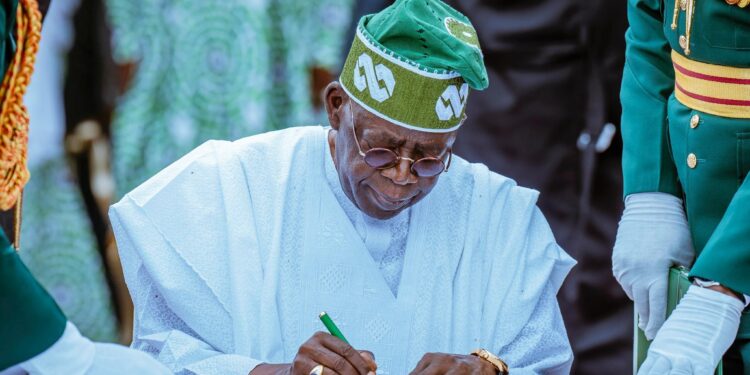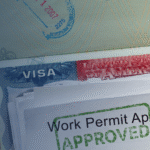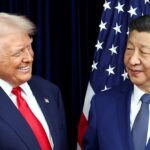The administration of President Bola Ahmed Tinubu has approved the immediate introduction of a 15% import duty on petrol and diesel.
The directive, communicated to the Federal Inland Revenue Service (FIRS) and the Nigerian Midstream and Downstream Petroleum Regulatory Authority (NMDPRA), is said to be aimed at leveling the playing field for local producers.
Tinubu directed the implementation of the tariff, calling it a “market-responsive import tariff framework” in a letter dated October 21, 2025, and made public on October 30, 2025.
Signed by Damilotun Aderemi, the letter contains the president’s approval after a proposal by the Executive Chairman of the FIRS, Zacch Adedeji.
In his memo to Tinubu, Adedeji had elaborated that the 15% import duty on petrol and diesel is part of ongoing reforms to boost local refining, ensure price stability, and strengthen the naira-based oil economy in line with the administration’s Renewed Hope Agenda for energy security and fiscal sustainability.
“The core objective of this initiative is to operationalise crude transactions in local currency, strengthen local refining capacity, and ensure a stable, affordable supply of petroleum products across Nigeria.
“While domestic refining of petrol has begun to increase and diesel sufficiency has been achieved, price instability persists, partly due to the misalignment between local refiners and marketers,” the FIRS boss said.
Meanwhile, following the announcement, Nigerians have begun to discuss the implications of the new 15% import duty on petrol and diesel.
This is as the new tariff is expected to hike the landing cost of petrol and diesel for importers.
The 15% import duty is expected to raise the landing cost of petrol by an estimated ₦99.72 per litre, pushing the average Lagos pump price to about ₦964.72 per litre ($0.62).
While this represents a modest increase, the government insists it remains competitive compared to regional averages: Senegal ($1.76), Côte d’Ivoire ($1.52), and Ghana ($1.37) per litre.
However, for domestic refineries, the development is largely positive. By increasing the price gap between imported and locally refined products, the duty provides a cushion for cost recovery and operational sustainability.
With diesel sufficiency already achieved and petrol refining capacity expanding, the import duty could accelerate Nigeria’s journey toward self-sufficiency in petroleum products.
A chieftain of the All Progressives Congress in Delta State, Ayiri Emami, who has joined the ongoing debates has decried approval for the implementation of a 15% import duty on petrol and diesel.
Emani said Nigerians would ultimately be at the receiving end of the new tariff.
He urged President Tinubu to suspend the 15 percent import duty on petrol and diesel to bring relief to Nigerians.
He said: “No, anybody advising Mr President to impose a 15 per cent tax on petroleum right now is not doing him any good.
“This kind of policy will not hurt marketers — it will hurt ordinary Nigerians. Whatever tax you put on petroleum goes straight back to the people on the streets. Nigerians are already hungry and struggling.
“If I were to meet Mr President, I would tell him plainly — and I’ve told people in my community the same thing. You see, in my area, especially among those of us who live by the river and depend on fishing, the cost of fuel affects everything. When you buy fuel, it determines whether you can even go out to fish. It’s not that the fish are gone — it’s that we can’t afford to reach them anymore.
“So anybody bringing up this idea of a 15 per cent tax, I will not support it. This is my government, and I know we need money, but there are other areas to look into.
“Whatever you do in petroleum pricing always goes back to the masses.
“For me, that 15 per cent should be kept aside until the government provides more relief to Nigerians. Even after removing the fuel subsidy, we haven’t seen much positive reflection. Things are still hard. So why add another burden?
“Some people don’t care about Mr President or what he’s going through—they just want to create more problems. Those are my honest opinions on the matter.”
Below are some other reactions from Nigerians;





